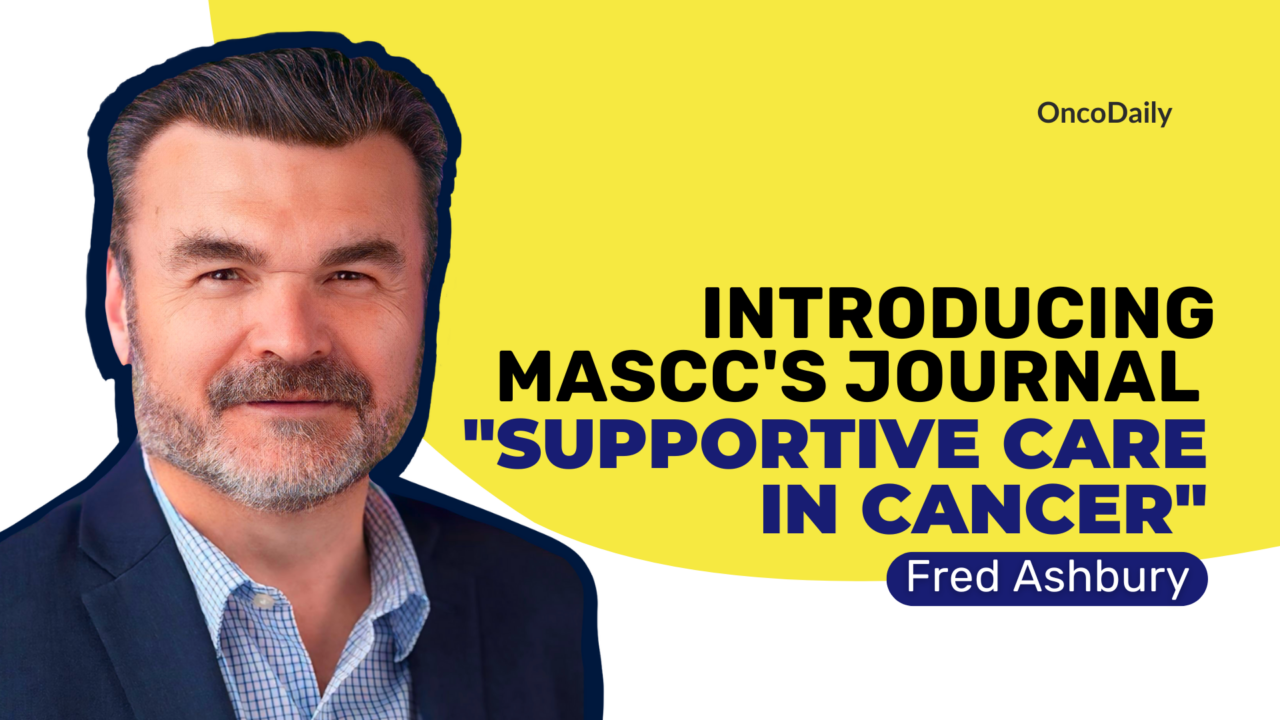In this episode of OncoDaily, Fred Ashbury, Editor-in-Chief of Supportive Care in Cancer journal, discusses the journal’s focus and submission process. Hosted by Dr. Martin Harutyunyan, Ashbury draws from over 15 years of experience as Editor-in-Chief and his role as a professor at The Ohio State University. He highlights the journal’s commitment to publishing high-quality research on cancer symptoms, side effects, quality of life, and psychosocial issues, with specialized sections on cancer disparities, pain management, and emerging toxicities.
Fred Ashbury, PHD MACE, is Chief Scientific Officer at Viecure. During his career, Fred has also held senior positions in the National Cancer Institute of Canada, Cancer Care Ontario, and the Alberta Cancer Board. He has published more than 130 peer-reviewed articles, scientific papers and major reports. Fred is a member of the American Society of Clinical Oncology.
Dr. Martin Harutyunyan is a medical oncologist and palliative care specialist who currently serves as the Head of the Palliative Medicine Service at Yeolyan Hematology and Oncology Center in Yerevan, Armenia. He has been working as a medical oncologist at the same center since October 2021.
Dr. Harutyunyan has made significant contributions to research and patient care throughout his career. He has worked as a clinical researcher at the “City of Smile” Charitable Foundation and as a medical coordinator at the Union of Armenian Doctors.
Hello, I’m Fred Ashbury, I’m Editor-in-Chief of the Multinational Association of Supportive Care and Cancer’s journal called Supportive Care and Cancer. I’ve been its Editor-in-Chief for 15 years. I’m also a professor in the Department of Internal Medicine and Medical Oncology at The Ohio State University.
If you’re familiar with the MASCC Journal, you’ll be aware that it’s an international journal. Its focus is on publishing high-quality articles and reviews that focus on the symptoms and side effects of cancer and cancer therapies. The journal has been publishing for more than 30 years.
The breadth of supportive care requires that the journal can respond to different areas, including quality of life, communication, physical symptoms, psychosocial sequelae of cancer, and so on. We receive roughly 300 papers a month to be adjudicated, which obviously represents the work that’s taking place by interested people in this area to ensure that cancer patients can participate in the programs of therapy and post-therapy successfully.
If you’re interested in publishing in the journal, you go online to Supportive Care and Cancer, determine what paper type, look at the instructions to authors for submission, and I would look forward to receiving those papers to be peer-reviewed for publication consideration.
More recently, we created some special sections of the journal dedicated to topics of more urgent, if you will, focus in supportive oncology. As an example, we have a section called Cancer Disparities. Papers in this area focus on all matters of disparity, and as we can see and know from the publications in this space, many of these papers need to be published on interventions that can support people from different groups.
We also have a section dedicated to cancer pain and emerging approaches to cancer pain. I’m contemplating creating a section on emerging toxicities that relate to novel therapies from omics-guided therapeutic interventions. As we see many of these symptoms and side effects of these therapies, while we may call them by the same name, the behaviors are different and therefore require different approaches to help solve them.
We have sections as well dedicated to topics such as the longer-term sequelae of COVID in cancer patient population. So again, I would urge you to go to the journal’s website, look at these different sections and opportunities, and if you have questions about the journal, please feel free to reach out if you would like to determine if the paper would be suitable or not for the journal in terms of topics that we cover. Of course, it will be peer-reviewed upon acceptance at the submission level.
Go through that peer-review process, and the outcome, of course, can vary.


